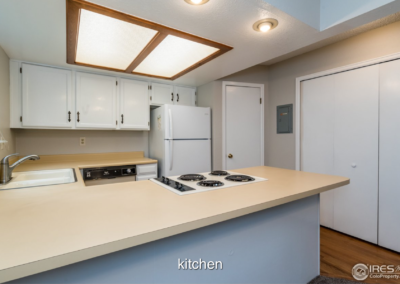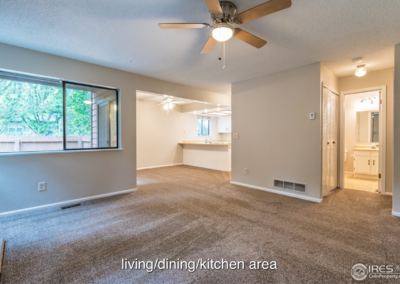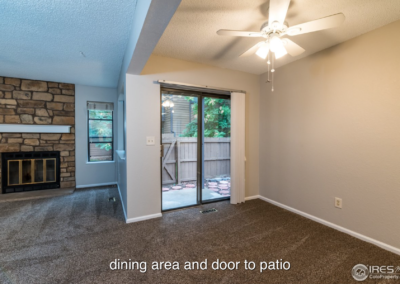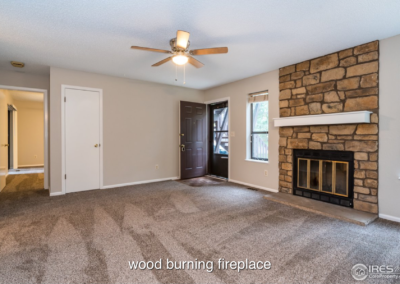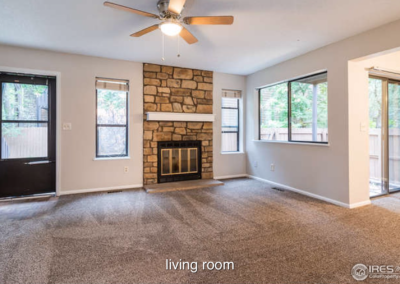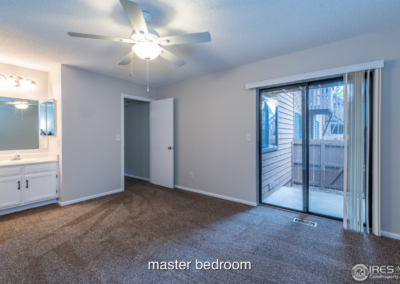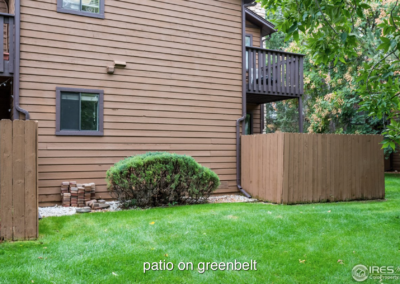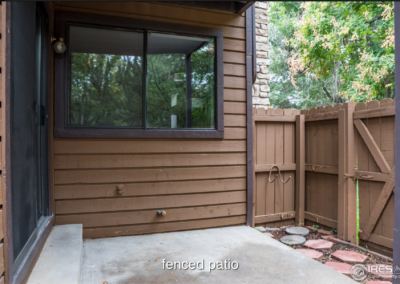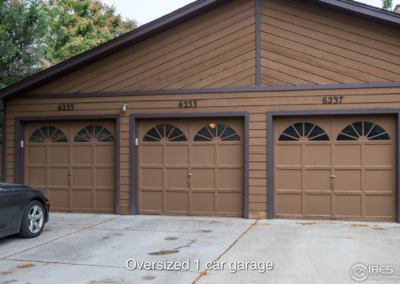by Farley Webmaster | Nov 3, 2019

Whether you’re a first-time buyer or a seasoned homeowner, shopping for a new home can feel daunting. In fact, 56% of buyers said that “finding the right property” was the most difficult step in the home buying process.1
Buying a home is a significant commitment of both time and money. And a home purchase has the power to improve both your current quality of life and your future financial security, so the stakes are high.
Follow these five steps—and complete the corresponding worksheet offered below—to assess your priorities, streamline your search, and choose your next home with confidence.
STEP 1: Set Your Goals and Priorities
The first step to finding your ideal home is determining WHY you want to move. Do you need more space? Access to better schools? Less maintenance? Or are you tired of throwing money away on rent when you could be building equity? Pinpointing the reasons why you want to move can help you assess your priorities for your home search.
Don’t forget to think about how your circumstances might change over the next few years. Do you expect to switch jobs? Have more children? Get a pet? A good rule of thumb is to choose a house that will meet your family’s needs for at least the next five to seven years.2 Be sure to set your goals accordingly.
STEP 2: Determine Your Budget
Many financial professionals recommend following the “28/36 Rule” to determine how much you can afford to spend on a home. The rule states that you should spend no more than 28% of your gross monthly income on housing expenses (e.g., mortgage, taxes, insurance) and a maximum of 36% of your gross monthly income on your total debt obligations (i.e., housing expenses PLUS any other debt obligations, like car loans, student loans, credit card debt, etc.).3
Of course, the 28/36 rule only provides a rough guideline. Getting pre-qualified or pre-approved for a mortgage BEFORE you begin shopping for homes will give you a much more accurate idea of how much you can borrow. Add your pre-approved mortgage amount to your downpayment to find out your maximum purchasing potential.
STEP 3: Choose a Location
When it comes to real estate, WHERE you choose to buy is just as important as WHAT you choose to buy.
Do you prefer a rural, urban, or suburban setting? How long of a commute are you willing to make? Which neighborhoods feed into your favorite schools? These decisions will impact your day-to-day life while you live in the home.
Another important factor to consider is how the area is likely to appreciate over time. Choosing the right neighborhood can raise the profit potential of your home when it comes time to sell. Look for communities that are well maintained with high home-ownership rates, low crime rates, and access to good schools, desired retail establishments, and top employers.4

STEP 4: Decide Which Features You Need (and Want) in a Home
Start with the basics, like your ideal number of bedrooms, bathrooms, and square footage. Do you prefer a one-story or two-story layout? Do you want a swimming pool?
Keep in mind, you may not find a home with all of your “wants,” or even all of your “needs” … at least not at a price you can afford. The reality is, most of us have to make a few compromises when it comes to buying a home.
Some buyers will opt for a longer commute to get a larger, newer home in the suburbs. Others will sacrifice hardwood floors or an updated kitchen so that their kids can attend their desired school.
If you’re faced with a tough choice about how or what to compromise in your home search, return to STEP 1. What were your original goals and motivations for moving? Reminding yourself of your true priorities can often provide the clarity that you need.
STEP 5: Meet with a Real Estate Agent
A good real estate agent can remove much of the stress and uncertainty from the home search process. From setting goals to securing a loan to selecting the best neighborhood to meet your needs, we will be there to assist you every step of the way.
And no one has more access to home listings, past sales data, or market statistics than a professional agent. We can set up a customized search that alerts you as soon as a new listing you might like goes live. Better yet, we get notified about many of the hottest homes even BEFORE they hit the market.
You might guess that the VIP service we provide is very expensive. Well, the good news is, we can represent you throughout the entire home buying process at NO COST to you. It’s true; the home seller pays a buyer agent’s fee at closing. So you can benefit from our time, experience, and expertise without paying a dime. It’s no wonder 87% of buyers choose to purchase their home with the help of an agent.1
And although we’ve listed it here as STEP 5, the reality is, it’s never too early (or too late) to contact an agent about buying a home. Whether you plan to buy today, next month, or next year, there are steps you can (and should) be taking to prepare for your purchase.
Call us today to schedule a free consultation!
The above references an opinion and is for informational purposes only. It is not intended to be financial advice. Consult a financial professional for advice regarding your individual needs.
Sources:
- NAR 2019 Home Buyers & Sellers Generational Trends Report – https://www.nar.realtor/sites/default/files/documents/2019-home-buyers-and-sellers-generational-trends-report-08-16-2019.pdf
- Architectural Digest – https://www.architecturaldigest.com/story/this-is-how-long-you-should-live-in-your-house-before-selling-it
- Investopedia – https://www.investopedia.com/terms/t/twenty-eight-thirty-six-rule.asp
- Money Talks News – https://www.moneytalksnews.com/20-clues-youre-buying-home-the-right-neighborhood/
by Farley Webmaster | Oct 7, 2019
Welcome home to your new ground floor Boulder condo!
Sweet location right off community greenbelt! This 2 bd 2 ba ground floor corner unit has two patios, one facing the greenbelt, one located off the master. Oversized 1 car garage provides for extra storage. Inviting open floor plan with new paint & carpet. Walk out your door and enjoy the quiet cul-de-sac,pool,community garden, & dog friendly park just steps away. Walking/running/biking trails are right around the corner. Quick access to restaurants,breweries,shopping,bus lines etc…
See Additional Details
by Farley Webmaster | Oct 3, 2019
Technology is changing the way we do almost everything, and real estate transactions are no exception. In fact, a new crop of tech companies wants to revolutionize the way we buy and sell homes. iBuyer startups like Opendoor, Offerpad, and Properly are rapidly expanding into new territories, and now established players, like Zillow, are heavily involved in the action, especially in the Denver metro real estate market. Also known as Direct Buyers, these companies use computer algorithms to provide sellers with a quick cash offer to buy their home. While the actual market share of iBuyers remains small, their big advertising budgets have helped create a noticeable buzz in the industry. This has left many of our clients curious about them and how they work. In this article, we explain their business model, weigh the pros and cons of working with an iBuyer, and share strategies you can use to protect yourself if you choose to explore this new option to buy or sell your home.
FIRST, HOW DOES THE iBUYER PROCESS WORK? While each company operates a little differently, the basic premise is the same. A seller (or seller’s agent) completes a brief online form that asks questions about the size, features, and condition of the property. Some also request digital photos of the home. The iBuyer will use this information to determine whether or not the home fits within their “buy box,” or set of criteria that matches their investment model. They are generally looking for houses they can easily value and “flip.” In most cases, their ideal property is a moderately priced, single-family home located in a neighborhood with many similar houses. The property shouldn’t require any major renovations before listing.1 These qualities make it easier to assess value (lots of comparable sales data) and help to reduce risk and minimize carrying costs. Once the iBuyer has used their algorithm to determine the amount they are willing to pay, they will email an offer to the seller, usually within a few days. The offer should also disclose the company’s service fee, which is typically between 7% and 12% of the purchase price.2 If the seller accepts, an in-person visit and inspection are scheduled. The iBuyer will ask for a reduction in price to cover any defects they find during the process. Once the sale closes, they will make the necessary updates and repairs and then resell the home on the open market.

WHAT ARE THE PROS AND CONS OF SELLING TO AN iBUYER? Of course, the biggest benefit of selling your home to an iBuyer is convenience. For some homeowners, the stress and disruption of preparing and listing their home can feel overwhelming. And what busy family with kids and pets wouldn’t want to skip the hassle of keeping their house “show ready” for potential buyers? Additionally, many sellers like the predictability of a cash buyer and the flexibility to choose their closing date. However, this added convenience does come at a cost. An iBuyer is an investor looking to make a profit. So their purchase offer is usually below true market value. When you tack on service fees of up to 12% and deductions for updates and repairs, studies show that sellers who work with iBuyers net a lower amount than those that list the traditional way.3 In fact, a MarketWatch investigation found that transactions involving iBuyers net the seller 11% less than if they would have sold their home with an agent on the open market.2
WHAT ARE THE PROS AND CONS OF BUYING FROM AN iBUYER? Buying a home from an iBuyer is a lot like buying a home from any investor. The pros are that it’s usually clean, neutral, and moderately updated. You’ll often find fresh paint and modern finishes. And because it’s uninhabited (no one is living there), you don’t have to work around a seller’s schedule to see the home. However, there are some pitfalls to avoid when working with iBuyers. Speed is of the essence, so sometimes the renovations are rushed and the quality can suffer. Also, their investment margins don’t leave much room for negotiating a price reduction or additional repairs. That leaves buyers —who have already invested hundreds of dollars in an inspection—little recourse if any issues are uncovered.4 That’s one of the reasons we always recommend viewing properties with an agent. During your visit, a real estate professional can point out any “red flags” at the home, provide background information about the neighborhood, and help you assess its true market value. That way, you don’t invest time and money in a high-risk or overpriced property. Safety is also a concern. Some companies allow buyers to access their homes via a smartphone app. While it may seem convenient, it provides an easy way for squatters and others to enter the home illegally.5 Luckily, since most iBuyers (and traditional sellers) pay a buyer agent’s commission, you can benefit from the guidance and expertise of a real estate professional … at no cost to you!
HOW CAN I PROTECT MYSELF IF I CHOOSE TO WORK WITH AN iBUYER? While it may seem like the “quick and easy” way to go, working with an iBuyer can present some unique challenges. For example, they are notorious for presenting a strong initial purchase offer and then whittling it down with a long list of costly updates and repairs once they complete their inspection.2 And unlike a traditional buyer who is incentivized to make a deal work, iBuyers can easily walk away if you don’t meet their demands. Just like you wouldn’t go to court without a lawyer, you shouldn’t enter into a real estate transaction without an advocate to represent you. Having a professional agent on your side can be especially important when negotiating with an iBuyer. Remember, they employ sophisticated representatives and a team of lawyers who are focused on maximizing their profits, not yours. You need someone in your corner who has the skills and knowledge to ensure you get a fair deal and who understands the terms of their contracts, so you don’t encounter any unpleasant surprises along the way. Overall, we think the emergence of new technology that helps to streamline the real estate process is exciting. And if we believe a client can benefit from working with an iBuyer, we present it as an option. But there is—inevitably—a cost to the convenience. After all, most iBuyers eventually list the properties they acquire on the open market, which is still the best place to find a buyer if you want to maximize the sales price of your home.
| EXPLORE YOUR OPTIONS Do you want to learn more about iBuyers and other options currently available in the Boulder area to buy or sell your home? We can help you determine the best path, given your unique circumstances. Contact us at 303-475-6269 to schedule a free, no-obligation consultation! |
Sources:
- The Dallas Morning News – https://www.dallasnews.com/business/real-estate/2019/07/11/so-called-ibuyer-real-estate-firms-pitch-programs-to-buy-your-house-help-you-hunt-for-another/
- MarketWatch – https://www.marketwatch.com/story/selling-your-home-to-an-ibuyer-could-cost-you-thousands-heres-why-2019-06-11
- Forbes – https://www.forbes.com/sites/alyyale/2019/08/16/study-shows-ibuyers-cost-home-sellers-thousands-is-convenience-worth-the-price/#697ac0c42269
- US News & World Report – https://realestate.usnews.com/real-estate/articles/what-to-expect-when-buying-a-home-from-an-ibuyer
- Inman – https://www.inman.com/2019/09/11/police-arrest-couple-found-squatting-in-opendoor-home-with-their-kids/
by Farley Webmaster | Sep 4, 2019

The U.S. unemployment rate is at a 50-year low, and consumer confidence remains high. In fact, the University of Michigan’s latest Surveys of Consumers found that Americans have their most positive personal finance outlook since 2003.1
However, if you follow national news, you’ve probably heard speculation that we could be headed toward a recession. Global trade tensions and a slow down in the GDP growth rate has sparked volatility in the stock market, leading to economic uncertainty.
Given these differing signals, you may be wondering: How has the U.S. housing market been impacted? Where is it headed? And more importantly … what does it mean for me?
MORTGAGE RATES ARE NEAR HISTORIC LOWS
In August, Freddie Mac reported that the average 30-year fixed mortgage rate hit its lowest level since November 2016, falling to 3.6%, down a full percentage point from a year earlier.2 Variable mortgage rates also fell when the Federal Reserve cut interest rates at the end of July for the first time since 2008.3
This was welcome news for many in the real estate industry. Freddie Mac predicts that low interest rates and a robust job market will help the housing market remain strong despite the threat of recession.
“There is a tug of war in the financial markets between weaker business sentiment and consumer sentiment,” said Sam Khater, Freddie Mac’s chief economist. “Business sentiment is declining on negative trade and manufacturing headlines, but consumer sentiment remains buoyed by a strong labor market and low rates that will continue to drive home sales into the fall.”2
What does it mean for you?
If you’re looking to buy a home, now is a great time to lock in a low mortgage rate. It will shrink your monthly payment and could save you a bundle over the long term. Or if you plan to stay in your current home for a while, consider whether it makes sense to refinance your mortgage at today’s lower rates.
PRICES CONTINUE TO RISE AT A MODEST PACE
According to the S&P CoreLogic Case-Shiller Indices, housing prices continue to rise. But the rate at which prices are rising is slowing down. For May 2019, the National Home Price Index rose by 3.4%, down from 3.5% the previous month.4
Of course, national averages often don’t present the whole picture. Some markets have seen modest declines, while other areas are witnessing double-digit increases. The key differentiating factor in most cases? Housing affordability.5
Since 2012, home prices have increased at about three times the pace of wages, according to National Association of Realtors chief economist Lawrence Yun.6
“Housing unaffordability will hinder sales irrespective of the local job market conditions,” said Yun. “This is evident in the very expensive markets as home prices are either topping off or slightly falling.”5
But what about all this talk of a recession? Will we see housing values plummet like they did in 2008? Economists say no.
If we look at history, the real estate crash experienced during the Great Recession isn’t typical.
The recent Housing and Mortgage Market Review report from Arch Mortgage Insurance provides data to support this. “What we found is that the next recession is likely to be far less severe on the housing market than the last one. It’s not that this time is different; it’s that last time was really different from historic norms.”6
“A large decline in national home prices is unlikely in the next recession,” Arch economists write. “A persistent housing shortage should help cushion home price declines.”6
What does it mean for you?
If you have the ability and desire to buy a home now, don’t let the threat of a recession hold you in limbo. The market is cyclical, and it will experience ups and downs. But over the long term, real estate has consistently proven to be a good investment.

STARTER INVENTORY REMAINS TIGHT WHILE LUXURY MARKET SOFTENS
As we’ve seen in the past, it’s become a tale of two sectors.
The low-end of the market remains highly competitive as buyers compete for affordable housing. A lack of new construction during the last recession led to an undersupply of starter homes. This trend continues—despite growing demand—due to a lack of skilled workers, rising land and material costs, and a slow permitting process in many areas.7
The result? There’s a shortage of homes for sale that Americans can actually afford to buy.
The luxury market, on the other hand, has softened. Economic uncertainty, changes to tax laws, and rising prices have slowed demand. Plus, to recoup their higher costs, builders flocked to this segment—causing an overabundance of supply in some areas.
“If you’re selling an entry level home, you’re probably still looking at a pretty competitive market in most places,” according to Danielle Hale, chief economist at Realtor.com. “But if you’re selling a more expensive home you probably have to adjust your expectations.”8
What does it mean for you?
Move-up buyers, you’re in luck! If you’re ready to trade in your starter home for something more luxurious, you may get the best of both sectors. We’re still witnessing strong demand for entry-level homes, giving sellers the upper hand. At the same time, buyers of high-end homes are finding a greater selection (and more negotiating power) than they’ve had in years.
INVESTORS ARE BUYING HOMES AT RECORD LEVELS
There’s one group that hasn’t been slowed down by lack of affordability or economic uncertainty: investors.
According to CoreLogic, investors are purchasing homes at a record pace. In 2018, the share of U.S. homes bought by investors reached 11.3%—the highest level since the company began tracking nearly 20 years ago.9
Notably, this increased activity wasn’t led by institutional investors, but instead by small and individual investors focused on the starter-home segment.7 Declining interest rates and an uncertain stock market has led investors to flock to real estate as they seek out greater stability and higher returns.
“With declining mortgage rates … they’re searching for a better return for their money,” said NAR chief economist Lawrence Yun.10
What does it mean for you?
If you’re looking for a way to “recession proof” your money, you might want to consider investing in real estate. People will always need a place to live, and (unlike the stock market) a rental property can provide a steady source of cash flow during uncertain economic times.
WE’RE HERE TO GUIDE YOU
While national real estate numbers can provide a “big picture” outlook, real estate is local. As Boulder real estate market experts, we can guide you through the ins and outs of our market and the issues most likely to impact sales and home values in your particular neighborhood.
If you have specific questions or would like more information about how market changes could affect you, contact us to schedule a free consultation. We’re here to help you navigate this shifting real estate landscape.
Sources:
- University of Michigan Surveys of Consumers – http://www.sca.isr.umich.edu/
- Freddie Mac – https://freddiemac.gcs-web.com/news-releases/news-release-details/mortgage-rates-drop-significantly?_ga=2.29332539.689041222.1565464527-928629548.1565464527
- CNN – https://www.cnn.com/2019/07/31/business/fed-rate-cut-july-meeting/index.html
- S&P Dow Jones Indices – https://us.spindices.com/documents/indexnews/announcements/20190730-965771/965771_cshomeprice-release-0730.pdf?force_download=true
- National Association of Realtors – https://www.nar.realtor/newsroom/metro-home-prices-increase-in-91-of-metro-areas-in-second-quarter-of-2019
- Forbes – https://www.forbes.com/sites/alyyale/2019/04/18/with-a-recession-looming-is-now-the-time-to-sell-your-home/#7d3a21665bce
- CNN – https://www.cnn.com/2019/08/09/economy/mortgages-home-buyers/index.html
- Forbes – https://www.forbes.com/sites/carolinefeeney/2019/07/01/halfway-into-2019-how-is-the-housing-market-holding-up/#7e656e3ec5d8
- CoreLogic – https://www.corelogic.com/blog/2019/06/special-report-investor-home-buying.aspx
- Fox Business – https://www.foxbusiness.com/economy/investors-snapping-up-homes-at-record-levels
by Farley Webmaster | Aug 12, 2019

In our “bigger is better” culture, there’s an expectation that each home should be larger and grander than the last. But life changes like divorce, kids leaving for college, or even the simple act of growing older can prompt us to find a smaller home that better suits our shifting needs and lifestyle.
In fact, the advantages of downsizing are being increasingly recognized. A “tiny house movement” has gained passionate advocates who appreciate the benefits of living simply at any age and stage of life. Not only does a smaller home typically cost less, it also takes less time and effort to maintain.1
Whatever your reasons are for downsizing, the process can seem overwhelming. That’s why we’ve outlined five steps to guide you on your journey. And in the end, we hope you’ll find that less is more … more comfort, more security, and more time and energy to spend on the activities and the people that you love.
5 STEPS TO DOWNSIZING SUCCESS
- Determine Your Goals and Limitations
The first step is to figure out your goals for your new living environment. Do you want to live closer to family? Are you hoping to cut down on home maintenance? Are you looking for a community with certain amenities?
You should also consider any limitations that will impact the home you choose. For example, are stairs an issue? Do you need access to medical care? In the case of divorce, are there child-custody issues you need to take into account?
Estimate how long you plan to stay in your new home. Do you expect your needs to change during that time?
Make a “wish list” of features and prioritize them from most to least important. If you’d like any assistance with this process, give us a call! We’d be happy to sit down with you for a free consultation. We can also help you assess the value of your current home so you can set a realistic budget for your new one.
- Find the Perfect New Home
Once you’ve established your “wish list,” we can begin the search for your new home. As local market experts, we know the ins and outs of all the top communities in our area. We can help you determine the neighborhood and type of home that will best fit your wants and needs.
From family neighborhoods to retirement communities, we serve clients in all stages of life. If you or a loved one are in need of extended support, we can also share our knowledge of the assisted living facilities in town and help you identify those that offer the optimal level of care.
Are you planning to relocate out of town? We can refer you to a trusted real estate professional in your target area who can help you with your search.
- Sell Your Current Home
If you’re ready to sell your current home, we’ll begin the process of preparing to list it as we search for your new one.
We have a special interest in helping homeowners who are facing major life transitions, and we offer a full-service real estate experience that aims to remove as much of the stress and hassle of selling your home as possible. We also understand that many of our clients choose to downsize for financial reasons, so we employ tactics and strategies to maximize the potential sales revenue of your home.
We do this by employing our proven three-part approach, which focuses on optimum preparation, pricing, and promotion. As part of that plan, we invest in an aggressive marketing strategy that utilizes online and social media platforms to connect with consumers and offline channels to connect with local real estate agents. This ensures your property gets maximum exposure to prospective buyers.
- Sort and Pack Your Belongings
Even before you find your new home, you can begin preparing for your move. A smaller home means less space for your furniture and other possessions, so you will need to decide what to keep and what to sell or donate. Sorting through an entire house full of belongings will take time, so begin as early as possible.
Parting with personal possessions can be an extremely emotional process. Start with a small, unemotional space like a laundry or powder room and work your way up to larger rooms. Focus on eliminating duplicates and anything you don’t regularly use. If you have sentimental pieces, family heirlooms, or just useful items you no longer need, think about who in your life would benefit from having them. For large collections, consider keeping one or two favorite pieces and photographing the rest to put in an album.2
Make sure the items you keep help you achieve the goals you outlined in Step 1. For example, if you want a home that’s easier to clean, cut down on knickknacks that require frequent dusting. If you’re moving to be closer to your grandchildren, choose the shatterproof plates over the antique china.
Allow yourself time to take breaks if you start to feel overwhelmed. If you’re helping a loved one with a move, try to be a patient listener if they want to stop and share stories about particular items or memories throughout the process.3 This can be therapeutic for them and an opportunity for you to learn family history that may otherwise have been forgotten.
- Get Help When You Need It
Moving is stressful in any situation. But if you’re downsizing due to health issues or a major life change, it can be an especially tough transition. Don’t be afraid to ask for help.
Seek out friends and family members who can assist with packing and decluttering. If that’s not an option, or if you need additional help, consider hiring a home organizer, full-service moving company, or even a senior move manager, which is a professional who assists older adults and their families with the physical and emotional aspects of relocation.4 You can find one accredited by the National Association of Senior Move Managers at https://www.nasmm.org/find/index.cfm.
If financial constraints are holding back, let us know. We can help you explore the possibility of tapping into the equity in your current home now. That way you can afford to get the assistance you need to make your transition as smooth as possible.
ARE YOU LIVING YOUR BEST LIFE?
If your current home no longer suits your needs, maybe it’s time to consider a change. We would love to help you explore your options. Contact us today to schedule a free, no-obligation consultation.
Sources:
- The Tiny Life –
https://thetinylife.com/what-is-the-tiny-house-movement/
- My Move –
https://www.mymove.com/moving/senior-guide-downsizing/
- Daily Caring –
https://dailycaring.com/5-tips-to-downsizing-for-seniors-keepsakes-mementos/
- National Association of Senior Move Managers –
https://www.nasmm.org




